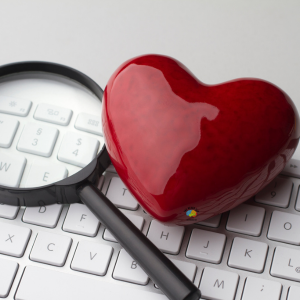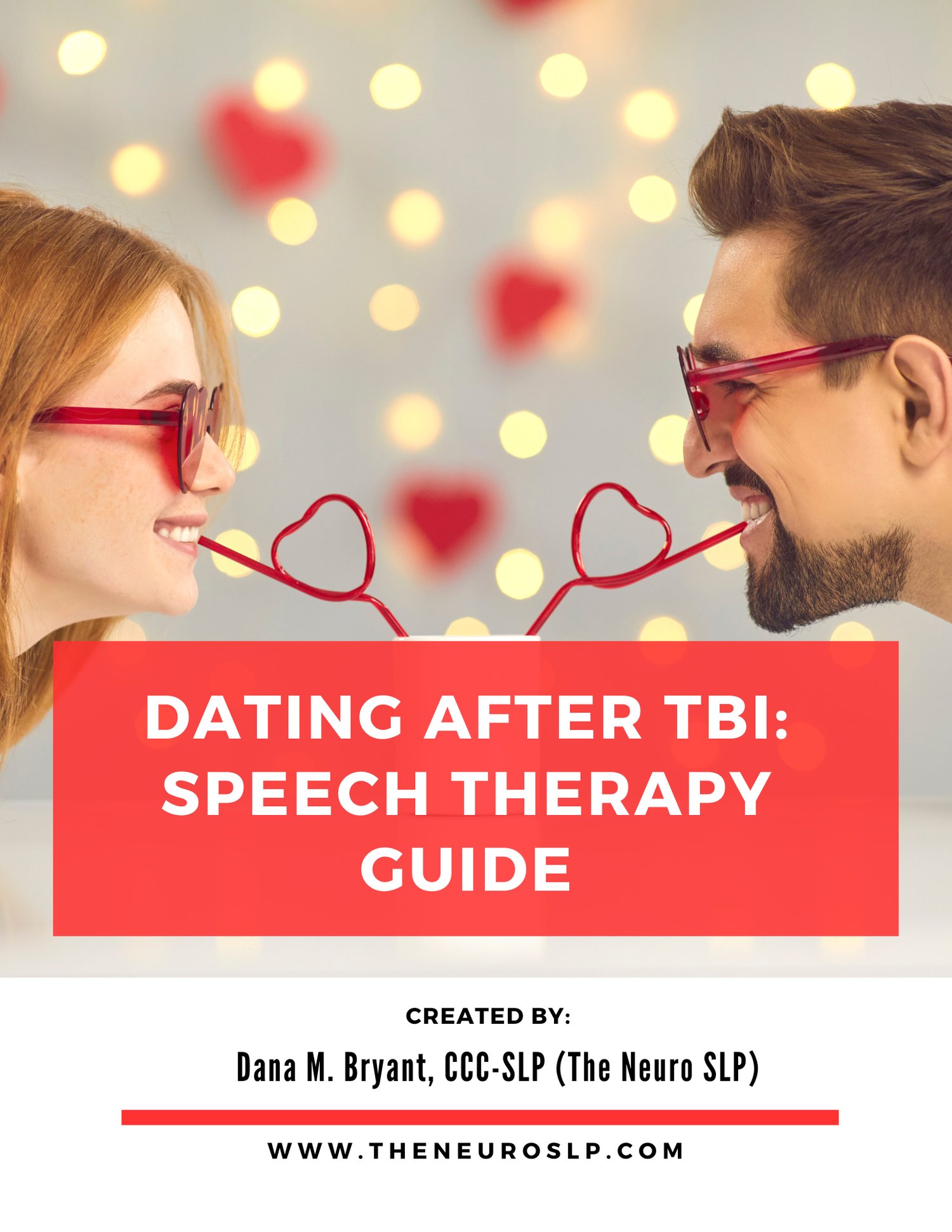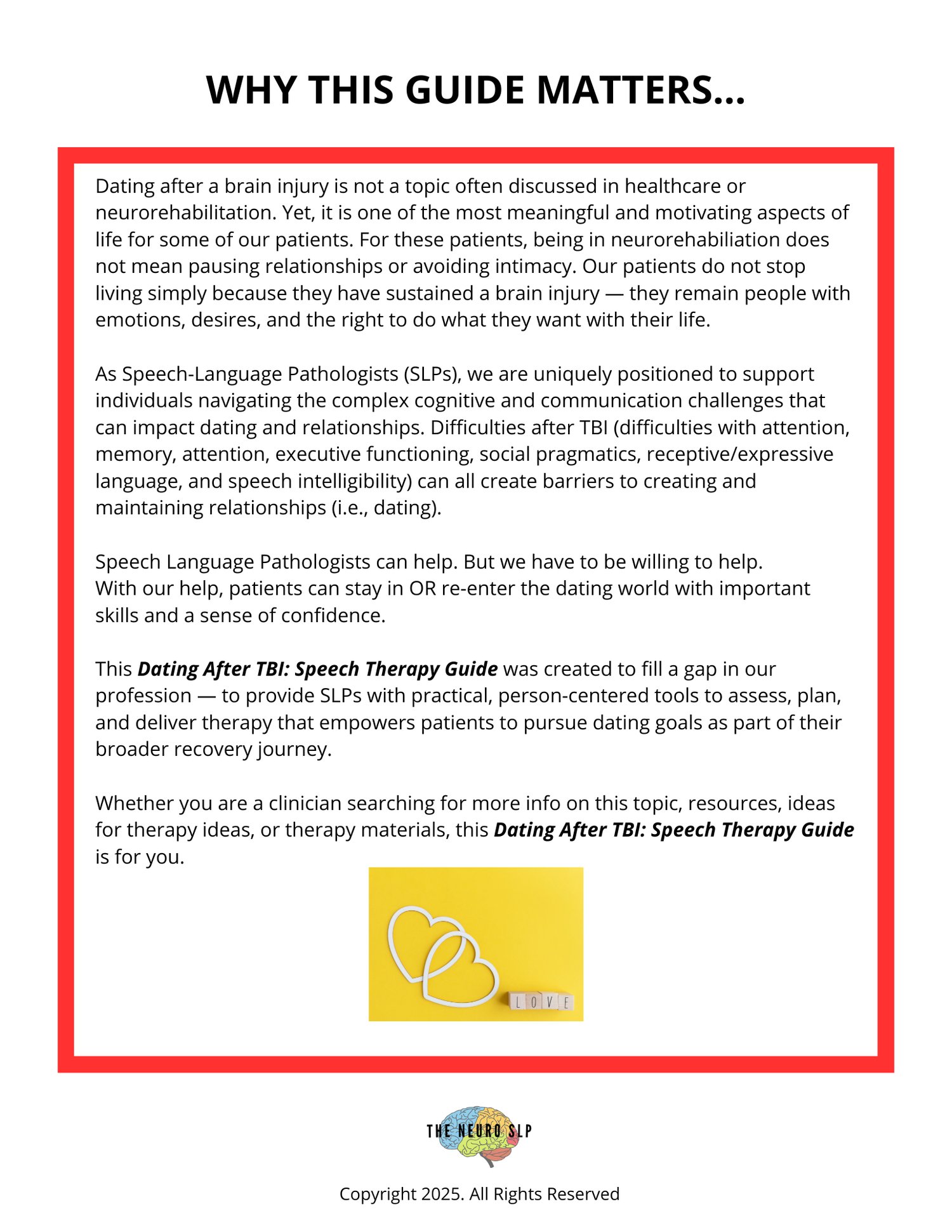Dating after a brain injury is not a topic often discussed in healthcare or neurorehabilitation (Exell et. al, 2020). Yet, it is one of the most meaningful and motivating aspects of life for some of our patients. For these patients, being in neurorehabilitation does NOT mean pausing relationships or avoiding intimacy. Our patients do not stop living simply because they have sustained a brain injury — they remain people with emotions, desires, and the right to do what they want with their life.
As Speech-Language Pathologists (SLPs), we are uniquely positioned to support individuals navigating the complex cognitive and communication challenges that can impact dating and relationships. Difficulties after TBI (difficulties with attention, memory, attention, executive functioning, social pragmatics, receptive/expressive language, and speech intelligibility) can all create barriers to creating and maintaining relationships (i.e., dating).
Speech Language Pathologists can help. But we have to be willing to help.
With our help, patients can stay in OR re-enter the dating world with important skills and a sense of confidence.
There was a research article published in 2020 by Baylor & White that cited a patient saying they were "disappointed" in their speech therapy services when dating wasn't addressed. DISAPPOINTED? I hope my patients are never disappointed in the care they receive from me. Here's the exact quote:
One of our research participants advised us that the best starting point for intervention is to ask the client, “What is the most important conversation for you?” In this gentleman’s case, he was participating in speech therapy to enhance speech intelligibility during a time in his life when he was single after a recent divorce. His “most important conversation,” or life communication situation, was meeting and dating new women. When that situation was not addressed in therapy, he felt disappointed in what he described as a “see Dick and Jane run” therapy program because of its rudimentary level of practice that bore little relevance to his daily life.”
All these reasons and more is why I created the Dating After TBI: Speech Therapy Guide (see below). I wanted to help fill a gap in our SLP profession — to provide SLPs with practical, person-centered tools to assess, plan, and deliver therapy that empowers patients to pursue dating-relevant goals (that are still within our scope of recovery) as part of their broader recovery journey.
Whether you are a clinician searching for more info on this topic, resources, ideas for therapy ideas, or therapy materials, this Dating After TBI: Speech Therapy Guide is for you.
References:
Baylor, C., & Darling-White, M. (2020). Achieving participation-focused intervention through shared decision making: Proposal of an age- and disorder-generic framework. American Journal of Speech-Language Pathology, 29(3), 1335–1360
Exell, R., Hilari, K., & Behn, N. (2021). Current practices and beliefs regarding supporting dating skills in rehabilitation for traumatic brain injury: A survey study. Brain Injury, 35(11), 1358–1370.






Comments ()